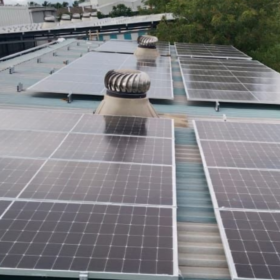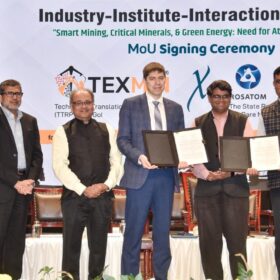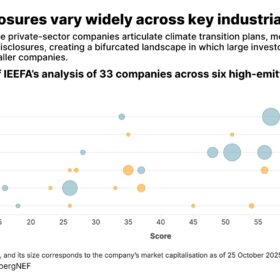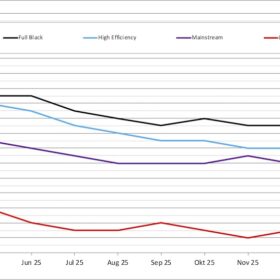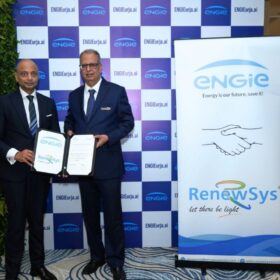What India needs to accelerate sustainable lending post-budget
The next phase of green growth will depend on how quickly capital reaches businesses that are ready to modernize, become energy-efficient, and invest in cleaner production systems. The question is no longer whether sustainable lending will grow, it is how fast we can remove the barriers preventing it from scaling.
TEXMiN, Russia’s GIREDMET ink pact on rare earth and critical mineral technologies
The TEXMiN Foundation, IIT (ISM) Dhanbad, has signed an MoU with GIREDMET State Research and Design Institute of Rare Metal Industry, Russia, to collaborate on rare earth processing, critical minerals, advanced materials, and translational research across the mining value chain. The partnership will also focus on hydrometallurgical recycling technologies for lithium-ion batteries to recover valuable metals.
IEC-based technical specifications needed for second-life PV module market
The latest report from the International Energy Agency’s Photovoltaic Power Systems Programme says second-life PV modules have the potential to reduce waste and extend the value of solar assets, but their market today remains underdeveloped and requires advances in technical qualifications, scalable reuse infrastructure and supportive policy frameworks.
Why corporate relations will define the green energy future
Green energy development today is being undertaken in a complex environment that is influenced by long-term capital commitments, changing regulation, and greater public and investor scrutiny. In this context, corporate relations is no longer restricted to disclosures, or media relations. It has become a strategic function that affects the way organisations are understood, evaluated and trusted over the course of time.
Credible transition plans key to unlocking decarbonization finance for India’s corporates
IEEFA’s assessment finds that while most companies have announced net-zero or emission reduction targets, only a limited number link these goals to capital expenditure plans, revenue assumptions or changes in business strategy, making it difficult for investors and lenders to assess the feasibility of transition pathways.
Building responsibly: India’s steel sector and the carbon budget challenge
India’s steel sector stands at a decisive moment. As the country pursues industrial growth, it must also demonstrate that development and decarbonisation can move together. The carbon budget framework offers not a constraint, but a compass, guiding industry toward innovation, resilience and global competitiveness.
Why India’s digital future will be built at the edge
The centralized cloud model is now under strain. India alone is estimated to have reached roughly 2,070 MW of data center capacity by the end of 2025, up from about 1,255 MW in 2024, driven by AI adoption, 5G rollout, and video led consumption, even as power, land, and network constraints become more visible. At the same time, global data center markets are grappling with power constraints, rising energy costs, and land limitations, making the continued expansion of a few large hubs increasingly inefficient.
Evaluating India’s corporate reporting framework for climate transition readiness: A BRSR–ISSB comparison
IEEFA’s analysis finds that the International Sustainability Standards Board (ISSB) S2 offers robust climate-specific guidance, while the Business Responsibility and Sustainability Reporting (BRSR) framework adopts a broader, ESG-oriented approach, with limited alignment to climate transition planning needs.
India’s transition to green steel is expected to be gradual, driven by renewables in the near term: ICRA
ICRA expects the Indian steel industry’s decarbonization to be gradual, with near-term emission reductions driven mainly by higher adoption of renewable energy and improvements in operational efficiency, as high costs and technology constraints limit faster decarbonization.
India introduces ‘Battery Aadhaar’ system to track EV batteries across lifecycle
India’s Ministry of Road Transport and Highways (MoRTH) has released draft guidelines for the implementation of a Battery Pack Aadhaar system—an indigenous digital identification and data storage mechanism designed to ensure end-to-end lifecycle traceability of batteries, particularly those used in electric vehicles (EVs).
